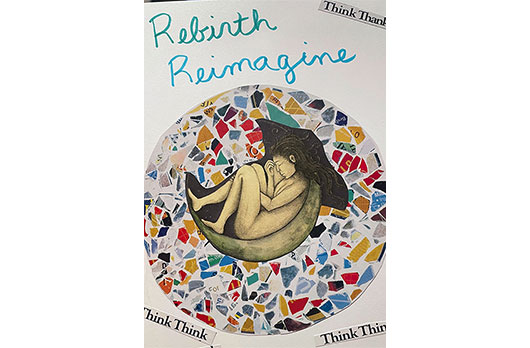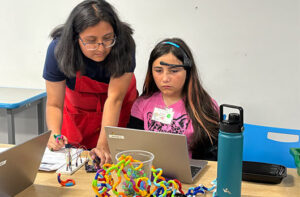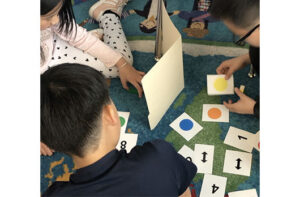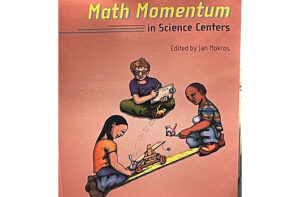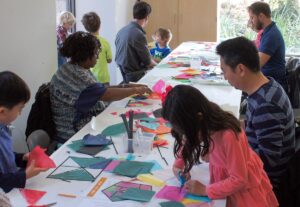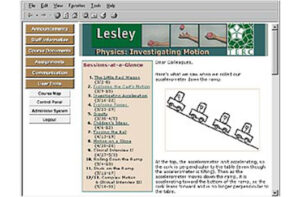Contemplative CRiT Collage Methodology
CCC
Lead Staff:
Lisette Torres-GeraldProject Staff:
Christina B. SilvaProject SummaryThis pilot study aims to develop and refine a new data collection methodology called Contemplative CRiT Collage (CCC). Its intention is to aid in the mending of graduate students of color with disabilities who encounter negative experiences in STEM. It is a new approach to supporting their persistence in STEM, and the pilot study will focus on graduate students of color with disabilities in the mathematical and physical sciences and geosciences.
CCC infuses visual arts-informed methods (i.e., photo elicitation and photovoice) with collage, contemplative practice, and Critical Race Theory. It is a unique methodology that Torres-Gerald first began developing as a doctoral student looking for a way to document the stories of women of color in STEM while addressing the pain that she knew many of them were in, especially given her own journey as a female scientist of color with a disability (Torres, 2016). She has used portions of this methodology herself in examining her scholarly identity as a disabled Latina mother-scholar during COVID (Torres, 2021). However, it has not been evaluated with other disabled scholars of color and requires further refinement.
The CCC project will be comprised of (1) a virtual retreat orientation where participants will be introduced to the CCC methodology, (2) journaling, (3) collage making, and (4) a 90-minute interview. CCC is a cyclical process that is participant-centered, starting with meditation and moving through creation, elicitation, interpretation, and action. Specifically, participants engage in a 15-minute mindfulness meditation practice with a certified mindfulness instructor. Afterwards, the participants create their own collage work based on a series of prompts related to their lived experiences in STEM. Interview questions or prompts for this pilot study may include:
• How was your experience with CCC?
• How did CCC help you reflect on your experiences?
• What modifications do you recommend making to CCC?
Once the collage pieces are created, the researcher and participant come together to dialogue about the works and their meaning during a 90-minute interview. Rather than using this methodology solely as data collection, we further extend CCC’s use to achieve self-mending for the participant. Based on the conversation, the researcher and participant determine an action, whether that be the co-construction of a collage that deepens both their understanding of the participant’s experience; the development of a strategy, practice, or community action; or another meditation session. For this pilot study, participants will also keep a journal so that we can evaluate the impact of CCC.
ImpactWe anticipate that the pilot will give us a greater understanding of the factors of persistence for graduate students of color with disabilities in STEM. It will also allow us to refine a new qualitative methodology that future researchers can use that could improve the mental health of marginalized scientists, as the therapeutic effects have already been demonstrated by similar methodologies such as photovoice (Lockyer & Koenig, 2020) and art therapy (Belkofer & Nolan, 2021).
This pilot study aims to develop and refine a new data collection methodology called Contemplative CRiT Collage (CCC). Its intention is to aid in the mending of graduate students of color with disabilities who encounter negative experiences in STEM. It is a new approach to supporting their persistence in STEM, and the pilot study will focus on graduate students of color with disabilities in the mathematical and physical sciences and geosciences.
CCC infuses visual arts-informed methods (i.e., photo elicitation and photovoice) with collage, contemplative practice, and Critical Race Theory. It is a unique methodology that Torres-Gerald first began developing as a doctoral student looking for a way to document the stories of women of color in STEM while addressing the pain that she knew many of them were in, especially given her own journey as a female scientist of color with a disability (Torres, 2016). She has used portions of this methodology herself in examining her scholarly identity as a disabled Latina mother-scholar during COVID (Torres, 2021). However, it has not been evaluated with other disabled scholars of color and requires further refinement.
The CCC project will be comprised of (1) a virtual retreat orientation where participants will be introduced to the CCC methodology, (2) journaling, (3) collage making, and (4) a 90-minute interview. CCC is a cyclical process that is participant-centered, starting with meditation and moving through creation, elicitation, interpretation, and action. Specifically, participants engage in a 15-minute mindfulness meditation practice with a certified mindfulness instructor. Afterwards, the participants create their own collage work based on a series of prompts related to their lived experiences in STEM. Interview questions or prompts for this pilot study may include:
- • How was your experience with CCC?
• How did CCC help you reflect on your experiences?
• What modifications do you recommend making to CCC?
Once the collage pieces are created, the researcher and participant come together to dialogue about the works and their meaning during a 90-minute interview. Rather than using this methodology solely as data collection, we further extend CCC’s use to achieve self-mending for the participant. Based on the conversation, the researcher and participant determine an action, whether that be the co-construction of a collage that deepens both their understanding of the participant’s experience; the development of a strategy, practice, or community action; or another meditation session. For this pilot study, participants will also keep a journal so that we can evaluate the impact of CCC.
We anticipate that the pilot will give us a greater understanding of the factors of persistence for graduate students of color with disabilities in STEM. It will also allow us to refine a new qualitative methodology that future researchers can use that could improve the mental health of marginalized scientists, as the therapeutic effects have already been demonstrated by similar methodologies such as photovoice (Lockyer & Koenig, 2020) and art therapy (Belkofer & Nolan, 2021).
